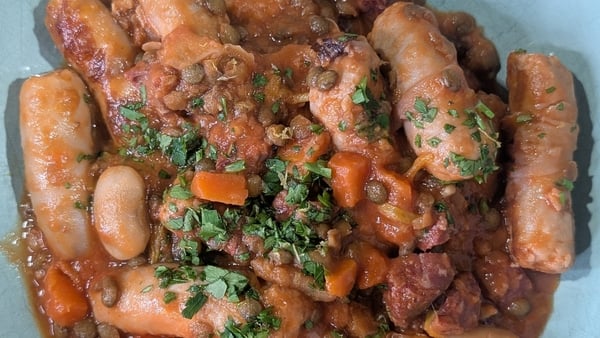Each timewe packed for our annual trip to Kerala, my mother would urge me to pack a few kurtas, and some full-length skirts so that I did not offend the sensibilities of my relatives or stand out.
And sure enough, I learnt it the hard way that even a casual ensemble of T-shirt and jeans could garner unwanted attention. This was in the early 2000s. About 10 years ago, when I moved to Aluva, I thought things might be looking up fashion-wise. Well, things had improved, marginally and I held out hope.
By 2025, the fashion scene in the State has undergone a total makeover. Be it anti-fit tees, and white sneakers to crop tops, mix and match of bold prints with solids, monochrome outfits and more, Gen Z sure knows how to make a fashion statement.
Twenty-one-year old Abhirami Chaliyadath, a student from Kozhikode, says, “For a long time, fashion was about wearing branded clothes; but I always felt , it was more about staying on trend.”

Garments by the label Bakr | Photo Credit: Special Arrangement
Social media sets the rules
With the dawn of the social media age, fashion began to be dictated by it, especially in the past five to six years. “Covid-19 changed a lot of things. Social media, especially Instagram, got a big boost. And that led to a wave of change in the fashion world, mostly led by a crop of influencers, who brought global trends to our screens. And that made a difference,“ says 28-year-old Amith Mohan, administrator and video content creator for @kozhikottukaarofficial, a influencer community in Kozhikode.
Gayathri Mohan, 31-year-old fashion content creator based in Mumbai, says the change is easily visible now. When she started out as a stylist in Kochi, fashion content creators were looked down upon. “Now, everyone, including big brands, understand the value of a collaboration with an influencer,” she says.

Gayathri Mohan | Photo Credit: Special Arrangement
And even if one isn’t an influencer, the popularity of a dress or a skirt, can create a ripple effect. As soon as a piece of clothing goes viral on social media, high street brands start recreating the design. “New trends aren’t limited to a certain circle anymore. It is everywhere — from office and college to your friends and family circle,” says founder and designer of Pranaah, Poornima Indrajith. “If my daughter (Prarthana) wears something, it is not just her, but a lot of other girls in her age group are wearing similar clothes.”
Social media has also blurred geographical boundaries, says Diya John of Salt Studio. “Kids’ these days are wearing crop tops, loose fit or baggy T-shirts and shirts, bomber jackets. It is amazing how, when the latest trends hits New York or Paris, an influencer sitting at Kottayam is wearing similar clothes at nearly the same time!”

A model in a Bakr T-shirt | Photo Credit: Special Arrangement
Designers are relying on social media for marketing their labels. Mohammed Hizqeel, designer of clothing label BAKR, says, “I tend to push my brand more on Instagram and it reaches the right people.”
Gender fluid fashion
The concept of gender has become more fluid and inclusive in fashion. “Youngsters are very aware of gender fluidity and they are opting to wear really anything they want to. During the Kochi Muziris Biennale (2024), where Salt had a pop up, we had these anti-fit shirts that were bought by both men and women,” says Diya.
Conventions are being broken, too. “These days men don’t shy away from choosing colours like salmon pink and teal. Korean inspired fashion — baggy tees made from fabric with high thread count that don’t crease, neutral colours and straight-fit jeans and monochrome are trending in men’s fashion,” Hizqeel adds.
Comfort is key
Form-fitting or tailored clothing is certainly passé. “Comfort is key and it is all about layering and mixing and matching baggy separates,” says Poornima. There is the rise of flared pants, crop jackets, waist-coats, flown dresses, and crochet tops, denim skirts and more. “The hip-hop culture has played a significant role in the fashion scene today,” she adds. Youngsters are into thrifting as well. ”With thrifting, one can get two to three good tops for ₹1,500, whereas, a high street brand would price one good top between ₹1,200- ₹1,800,” says Abhirami.

Abhirami Chaliyadath | Photo Credit: Special Arrangement
“We don’t really have a concept of different seasons, but, Gen Z doesn’t seem to care. They are opting to wear layered clothing, albeit light layers,” Gayathri says. The colours that are trending in this season are black, white, olive, deep reds and maroons. According to Diya, florals and stripes are always in vogue and “the way the youth are mixing and matching the prints, with print on print or setting it off with solids, is so refreshing.”
Cultural shift and availability
If you step into any club, coffee shop, or even the streets of Kochi, you’ll see, there’s definitely a style and a cultural shift, says Diya. “Parents don’t body shame anymore; they are more supportive and let the kids be. This wasn’t the case when I was growing up. I remember, when my older cousins would say they want to study fashion design, the family elders would discourage it.”
Availability matters too. “With brands like Zara and H&M having online stores now, trendy clothes are readily available. The younger generation is also into thrifting, especially since the Y2K fashion is back,” she says Diya.
Published - January 09, 2025 02:39 pm IST



